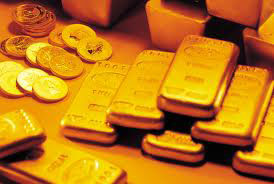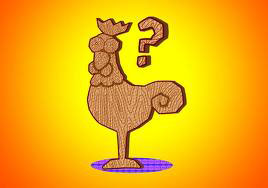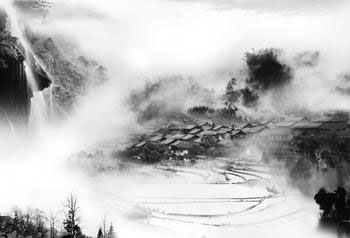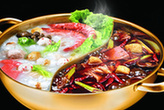
金 (jīn) means gold, and is also a family name. It was originally the generic term for metal, as in the phrase 五金 (wǔ jīn), meaning metals or hardware. Another example is 金文 (jīn wén), the term for inscriptions on Shang and Zhou dynasty (1556-256 BC) bronze ware. Chinese phrases featuring 金 (jīn) generally relate either to the distinctive color or high value of gold. For instance, 黄金时段 (huáng jīn shí duàn), meaning golden time slot, refers to prime time TV. A lavishly decorated room is often described as 金光灿灿 (jīn guāng càn càn), meaning gleaming in auric splendor. Chinese people also admiringly describe Western women with blonde hair as 金发碧眼 (jīn fà bì yǎn), meaning golden hair and jade blue eyes.

The character 木 (mù), meaning wood, resembles its original pictograph of a tree. As wood is both static and stolid, the phrase 木讷 (mù nè) describes a person who is reticent or withdrawn. Although not complimentary today, in Confucian thought it denotes a person who is staunch, brave, chaste and reticent – qualities associated with benevolence and virtue. Characters containing 木 (mù), however, tend to be disparaging. 麻木 (má mù) means either physically numb or callous in attitude. The literal meaning of 呆若木鸡 (dāi ruò mù jī) is “dumb as a wooden chicken,” in the sense of being transfixed with horror.

水 (shuǐ), means water, and has linguistically complex applications. In Chinese culture, notably Taoism, it has profoundly moral connotations. Water is believed to be the source of great wisdom, as expounded by artists, politicians and thinkers throughout Chinese history. Almost all words incorporating this character are commendatory. For instance, someone might remark to a mother on her child’s 水灵 (shuǐ ling), or delicate complexion, or describe a style of writing as having the natural fluency and grace of 行云流水 (xíng yún liú shuǐ) – floating clouds and running streams.

The Chinese character for fire 火 (huǒ) resembles a leaping flame. Phrases that include it hence have associations with heat. A lively, vibrant event, for example, is 火热 (huǒ rè), someone or something that is very popular is 很火 (hěn huǒ), and a desirable woman is described as 火辣 (huǒ là), or hot and spicy. Wedding banquet guests traditionally wish the happy couple a future that is 红红火火(hóng hóng huǒ huǒ), meaning happy and prosperous.

The character for the last element 土 ( t ǔ) meaning earth, symbolizes the shoot of a plant sprouting from the soil. As the source of all food, earth merits supreme reverence, yet many Chinese expressions incorporating this word are derogatory. The phrase 很土 (hěn tǔ), for example, means old fashioned, 土包子 (tǔ bāo zi), literally a dirt dumpling, means a clodhopper or coarse person. It brings to mind the French idiom, cul-terreux, directly translated as a person whose backside is covered in dirt/soil. As both France and China are agricultural forces, it is interesting, but disappointing, to note the low respect their respective languages show for things rural.
By SEBASTIÉN ROUSSILLAT, who is a postgraduate at Shandong Normal University.
Editor:JinXin




Why not rent a boyfriend, or girlfriend to please parents during the Spring Festival?